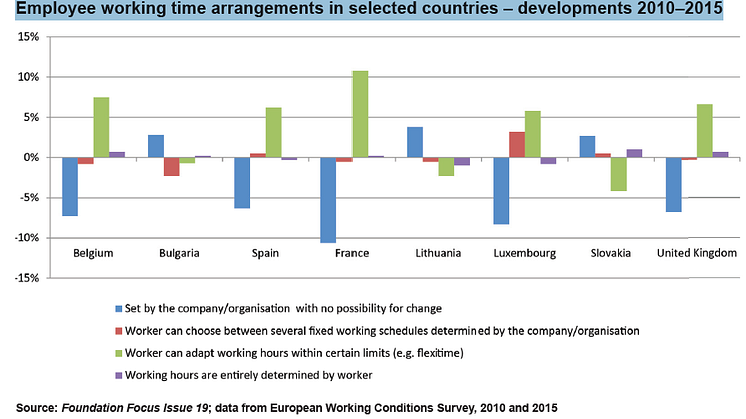Reducing Europe’s gender employment gap
On the occasion of International Women's Day, Eurofound Senior Research Manager Massimiliano Mascherini looks at the impact of the gender employment gap on Europe.

On the occasion of International Women's Day, Eurofound Senior Research Manager Massimiliano Mascherini looks at the impact of the gender employment gap on Europe.

8 March is International Women’s Day. The day marks the wide-scale progress made towards achieving gender equality and combating gender-based injustice, but also serves as an important impetus to ensure the spotlight remains on continued work towards realising these goals across the globe.
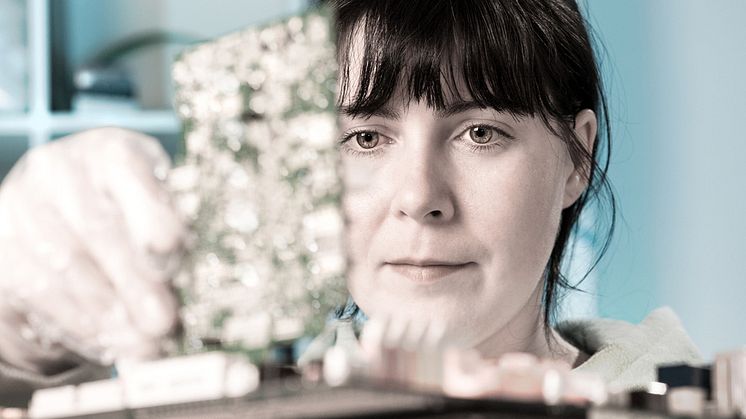
The growth in average (nominal) pay of employees has accelerated in recent years in EU countries after a slump following the economic crisis (AMECO data). Similar developments show up in data on collectively agreed wages. However, higher wage growth figures do not automatically mean that all employees benefit equally

A new report from Eurofound, Delivering hospital services: A greater role for the private sector? examines the impact of private sector involvement in hospitals in terms of quality, efficiency and accessibility of services.

Eurofound’s European Restructuring Monitor (ERM) charts the announced employment impacts of large-scale restructuring events in European countries. The figure shows aggregate job loss and job gain as recorded in the ERM dataset from the peak crisis years 2008–2010 to end June 2016
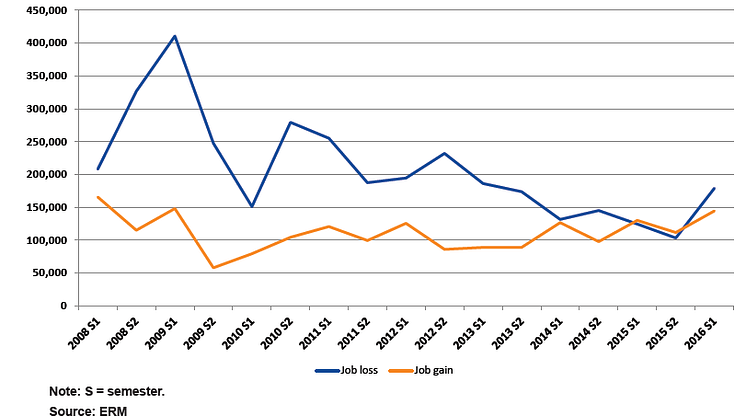
Overall in the EU, employment has finally recovered to pre-economic crisis levels. The annual report from Eurofound’s European Restructuring Monitor (ERM) Globalisation slowdown? Recent evidence of offshoring and reshoring in Europe describes the nature of this recovery – in particular, indicating the sectors that have gained and lost jobs. It also examines the offshoring of production to countrie
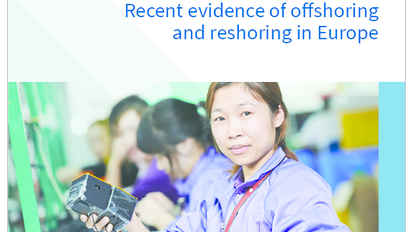
Since the financial crisis, people in many countries have faced a sharp fall in living standards; moreover, economic inequalities are on the rise. Consequently, policy attention is starting to shift towards addressing this lack of equal opportunities as well as the transmission of (dis)advantage across generations. On 4 May, in Paris, Eurofound and the OECD Centre for Opportunity and Equality will

On 13 January, Eurofound welcomed Enrique Calvet Chambon MEP (front row, centre) to its premises in Dublin. The European Parliament’s rapporteur on the revision of Eurofound’s Founding Regulation, Mr Calvet Chambon met with the Agency’s Director, Juan Menéndez-Valdés (front row, left) and Deputy Director Erika Mezger (front row, right), as well as senior staff. In August 2016, the European Commiss
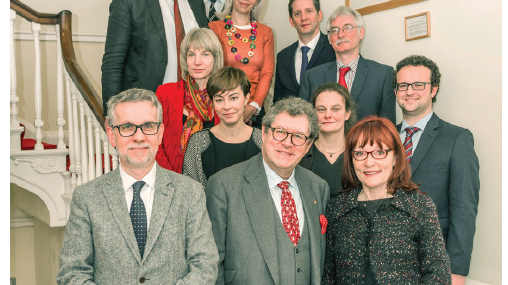
The expanding use of digital technology in the form of smartphones, tablets and laptops is rapidly transforming the traditional model of work, according to a new report jointly published by Eurofound and the ILO.

At a conference on the European Pillar of Social Rights in January 2017, European Commission President Jean-Claude Juncker told delegates that every EU Member State should have a minimum wage.
As part of its ongoing investigation into the implementation of minimum wages across the EU, Eurofound has just published its annual topical update on the subject. The update gives information on minimum

The expanding use of digital technologies such as smartphones, tablets, laptops and desktop computers for work for home and elsewhere is rapidly transforming the traditional model of work. It can improve work-life balance, reduce commuting time, and boost productivity, but it can also potentially result in longer working hours, higher work intensity and work-home interference.

The International Labour Organization (ILO) will launch a joint report with Eurofound entitled Working anytime, anywhere: The effects on the world of work, on Wednesday 15 February.
At a time when the use of digital technology is constantly growing, the new research highlights opportunities and challenges of expanding telework. It synthesises research carried out by both organisations in 15 cou

The growth in the level of minimum wages accelerated in the period between January 2016 and January 2017, with the largest increases in newer EU Member States. This continues a trend of slow convergence between minimum wage levels in Europe - however there is still a long way to go, with minimum wage workers in Luxembourg making eight and a half times as much as minimum wage workers in Bulgaria. T

Dr Erika Mezger, Eurofound's Deputy Director, outlines that European Working Conditions Survey EWCS says about working conditions among German workers and how they compare to those of the rest of Europe.
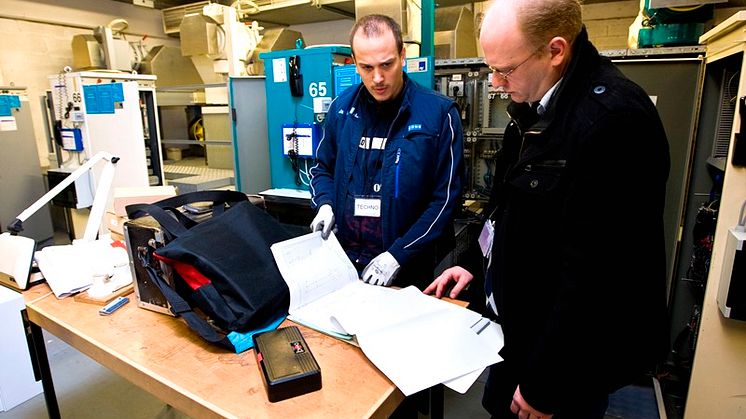
Our new publication Delivering hospital services: A greater role for the private sector? examines the role and contribution of the private provision of hospital services in the European Union. The report maps the extent of private provision across Europe, examines the drivers for increased private provision, describes how it takes place and presents the views of different stakeholders.

A new series of sectoral information sheets, based on Eurofound’s European Company Survey, looks in detail at a range of aspects of company practices – including innovation. The financial services sector is more innovative than the average sector in the EU28 in terms of the introduction of new or significantly improved organisation (42% compared with 31%). However, it is less innovative in terms o
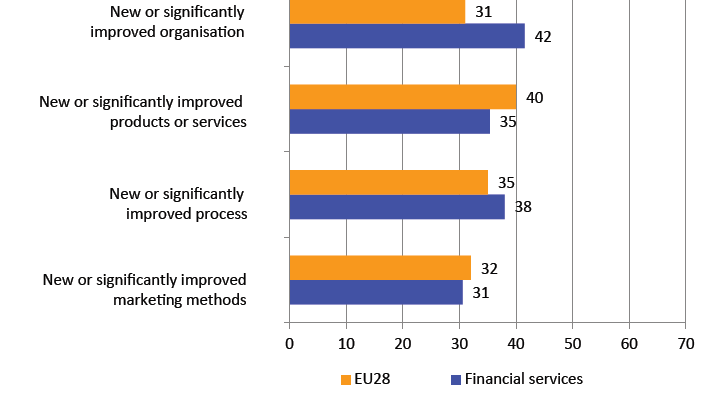
Eurofound has just published a series of nine sectoral profiles examining economic sectors in the EU, based on the analysis of data from its 2013 European Company Survey. The profiles give an overview of structural characteristics, work organisation practices, human resource management, employee participation and social dialogue in the sectors concerned – business and administration, commerce and
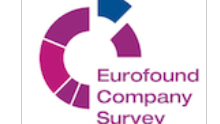
Low-wage jobs have been a focus of debate across Europe during 2016, the issues discussed also reflecting differing national concerns. For some countries, the key issue is integrating migrants into the labour market; for others, stimulating job creation. A new topical update examines the debate in six countries, illustrating a variety of objectives and responses. In Norway and Sweden, the priority

Countries across Europe are well aware of the need to embrace the digital transformation of the economy so that they are placed to reap its benefits. This was a point stressed in the contributions to Eurofound’s Foundation Seminar Series (FSS) 2016, the theme of which was the impact of digitalisation on work. The contributions, created by teams from 15 Member States, also highlighted the challenge
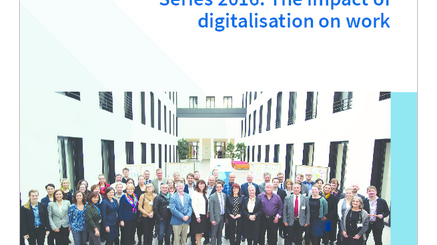
Between 2010 and 2015, as highlighted in the latest issue of Eurofound’s magazine Foundation Focus, there was an overall increase in the proportion of workers with some form of flexible working time and a decline in the extent of schedules with no possibility for change. In some countries, the proportion of workers with flexible arrangements has decreased (Bulgaria, Lithuania and Slovakia). In the
